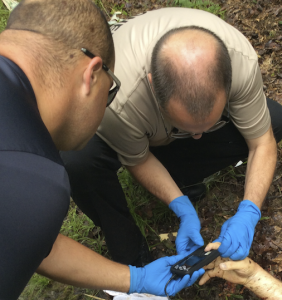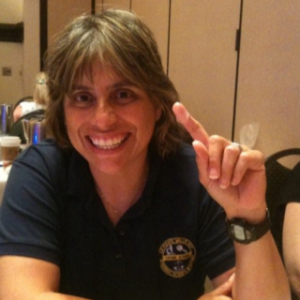 What is a Medicolegal Death Investigator?
What is a Medicolegal Death Investigator?
The role of the medicolegal death investigator is to investigate any death that falls under the jurisdiction of the medical examiner or coroner, including all suspicious, violent, unexplained and unexpected deaths. The medicolegal death investigator is responsible for the dead person, whereas the local law enforcement jurisdiction is responsible for the scene. The medicolegal death investigator performs scene investigations emphasizing information developed from the decedent and determines the extent to which further investigation is necessary. Medicolegal death investigators should have a combination of education and skills encompassing areas of medicine and law.
- Who can become a Medicolegal Death Investigator?
There are no formal requirements to become a medicolegal death investigator. Each coroner and medical examiner office has different hiring practices. A medicolegal death investigator must be knowledgeable of local, state and federal laws. In addition, a medicolegal death investigator must be the most medically knowledgeable person at the scene of the crime to determine if further investigation is necessary. - Do I have to have a degree?
There are no formal educational requirements specifically for medicolegal death investigation. Any degree program dealing with Forensic Science, Natural science, Anthropology, Nursing, or any other medically related field would be useful. There are several established training courses available throughout the country that teach the basic information needed in order to perform a thorough, competent medicolegal death investigation. - How much money will I make as a Medicolegal Death Investigator?
An investigator’s salary will be determined by the jurisdiction and amount of experience the medicolegal death investigator has. Salaries and benefits vary throughout the United States.
What does a Forensic Science Technician do?
At a crime scene, a forensic science technician will typically do the following:
- Walk through the scene to determine what and how evidence should be collected
- Take photographs of the crime scene and evidence
- Make sketches of the crime scene
- Keep written notes of their observations and findings, such as the location and position of evidence as it is found
- Collect all relevant physical evidence, including weapons, fingerprints, and bodily fluids
- Catalogue and preserve evidence before transferring it to a crime lab. Forensic science technicians may use tweezers, black lights, and specialized kits to identify and collect evidence. In addition to processing crime scenes, they may also attend autopsies.
In laboratories, a forensic science technician will typically do the following:
- Identify and classify crime scene evidence through scientific analysis
- Explore possible links between suspects and criminal activity using the results of chemical and physical analyses
- Consult with experts in related or specialized fields, such as toxicology, about the evidence and their findings
- Reconstruct crime scenes based on scientific findings
Forensic science technicians reconstruct crime scenes by carefully studying information gathered by investigators and conducting scientific tests on physical evidence. For example, lab technicians may look at photographs of blood splatter patterns and conduct ballistics tests on bullets found at the crime scene to determine the direction from which a shot was fired.
Forensic science technicians who work in laboratories use chemicals and laboratory equipment such as microscopes when analyzing evidence. They also use computer databases to examine fingerprints, DNA, and other evidence collected at crime scenes in order to match them to people and things that have already been identified. Most forensic science technicians who perform laboratory analysis specialize in a specific type of evidence analysis, such as DNA or ballistics.
All forensic science technicians prepare written reports that detail their findings and investigative methods. They must be able to explain their reports to lawyers, detectives, and other law enforcement officials. In addition, they may be called to testify in court about their findings and methods.
What is the workplace of a Forensic Science Technician like?
Forensic science technicians must travel to different locations around a city or region because crimes can occur anywhere. Crime scene investigation can be distressing and unpleasant because investigators see many disturbing sights. Crime scene investigators work staggered day, evening, or night shifts and may have to work overtime because they must always be available to collect evidence.
This Episode’s Guest
 Terri Armenta
Terri Armenta
coroner,police training, darren dake,sheriff,deputy,coroner association,murder scenes,csi,detective,detective training,auto fatalities,autoerotic fatalities,become a coroner,forensic science,how to become a coroner how to become a crime scene technician,terri armenta,forensic science academy
4 comments on “So You Want to be a Death Investigator”
Leave a Reply
You must be logged in to post a comment.

am interested in the program it will help me to became a good forensic science technician either in a lab or field collecting evidence and i rely find these program to be vital currently am working with zambia police training college am in a REGISTRY OFFICE ,SO FOR FAR I HAVE BASIC EDUCATION WITH INTERNATIONAL FORENSIC SCIENCE IFS INDIA WHERE I GOT A ADVANCE DIPLOMA IN FORENSIC SCIENCE AND FINGERPRINT AND I
HAVE ALSO CERTIFICATE IN FORENSIC SCIENCE AND CRIMINAL INVESTIGATION PSYCHOLOGY
We will be honored to help in every way we can.
THANKS A LOT FOR YOUR QUICK RESPOND AM LOOKING FORWARD TO DO DEGREE PROGRAM ON LINE DUE TO NATURE OF THE JOB I DO COULD THERE SCHOOLS YOU CAN RECOMMEND THAT CAN OFFER PURE FORENSIC
Would a Bachelors degree in Bio-cultural Anthropology be sufficient? I took several Forensics, and osteology courses, Entomology (Forensics), Anatomy and Physiology 1/2, and pretty much all my pre-med courses. I also did a Forensics Osteology lab and field work cleaning and reconstructing mass grave remains (all de-boned) and photography of course. I also started out in Nursing and switched my major. I’ve also worked at crime scenes but as a victim advocate for the Red Cross after fires I did legal research (worked both with Death Investigation as well as environmental work) for 5-6 years…but I’ve had no direct crime scene experience? Oh and I worked in Guatemala interviewing victims families and witnesses. Any recommendations? Grad school is not an option for me at this time due to the cost 🙁